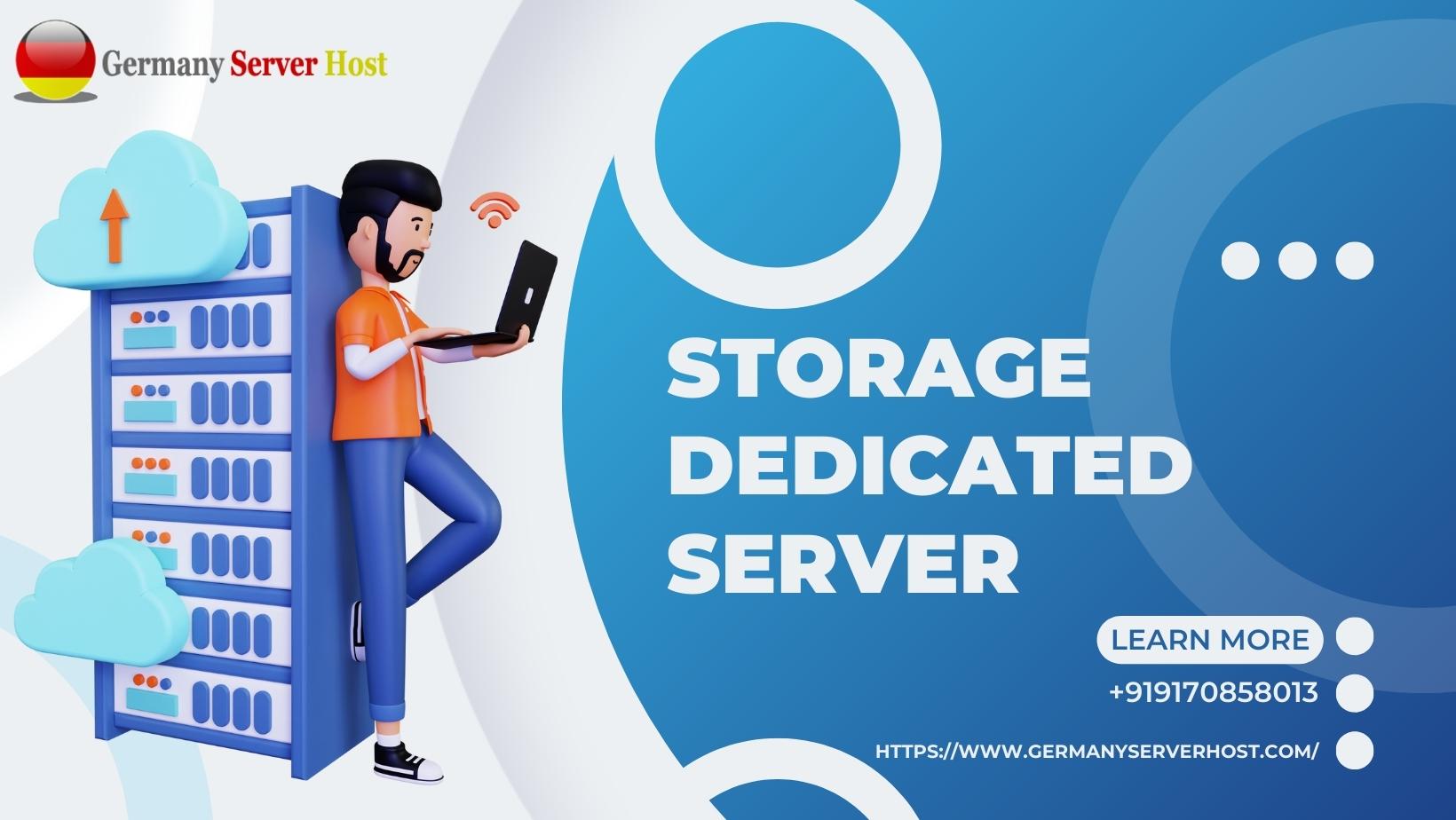In today’s data-driven world, organizations require efficient and reliable storage solutions to manage their ever-expanding volumes of data. A Storage Dedicated Server is a powerful solution designed specifically to address these needs. This article explores the concept of a dedicated server, its benefits, and considerations for choosing and managing one.
What is a Storage Dedicated Server?
A dedicated server is a robust hardware infrastructure solely dedicated to storing and managing large amounts of data. It is equipped with high-capacity hard drives or solid-state drives (SSDs) and offers advanced storage management features. Unlike traditional servers, which serve multiple purposes, a dedicated server focuses solely on data storage, making it an ideal choice for businesses with extensive storage requirements.
Benefits of a Storage Dedicated Server
Scalability and Flexibility
With a Cheap dedicated server, businesses can easily scale their storage capacity to accommodate growing data needs. These servers are designed to support high storage densities, allowing organizations to expand their storage infrastructure without disrupting operations. Additionally, the flexibility of a dedicated server enables businesses to customize storage configurations based on their specific requirements.
Enhanced Data Security
Data security is of paramount importance for any organization. Our dedicated server provides enhanced data security measures such as encryption, access controls, and regular backups. These servers can be configured to meet industry-specific compliance standards, ensuring the confidentiality and integrity of sensitive data.
Improved Performance and Reliability
Best dedicated servers offer superior performance and reliability compared to traditional storage solutions. With high-speed storage interfaces and optimized data transfer protocols, these servers deliver faster read and write speeds, reducing latency and improving overall data access times. Additionally, their redundant hardware components minimize the risk of data loss due to hardware failures.
Cost-Effective Solution
Investing in a best dedicated server can be a cost-effective solution for businesses with significant storage needs. By opting for a dedicated server, organizations can avoid the expenses associated with maintaining and upgrading their own storage infrastructure. Moreover, the scalability and efficiency of dedicated servers contribute to long-term cost savings.
How to Choose the Right Dedicated Server
When selecting a dedicated server, several factors need to be considered to ensure it aligns with your business requirements. Here are some key considerations:
Considerations for Storage Capacity
Assess your current and future storage needs to determine the required capacity of the server. Consider factors such as data growth rate, anticipated usage patterns, and expected lifespan of the server.
Redundancy and Fault-Tolerance
Look for dedicated servers with built-in redundancy features, such as RAID configurations or hot-swappable drives. These ensure data availability and minimize downtime in case of hardware failures.
Connectivity and Bandwidth
Evaluate the server’s connectivity options and bandwidth capabilities. High-speed network interfaces, such as Gigabit Ethernet or 10 Gigabit Ethernet, enable efficient data transfer between the server and other network resources.
Managed Services and Support
Consider opting for a dedicated server with managed services and technical support. These services can assist with server setup, maintenance, and troubleshooting, allowing your IT team to focus on core business activities.
Setting Up and Managing a Dedicated Server
Setting up and managing a dedicated server requires careful planning and expertise. Here are some general steps to follow:
Choose a reputable hosting provider that offers dedicated servers.
Determine your storage requirements and select an appropriate server configuration.
Configure RAID settings and implement data redundancy for fault-tolerance.
Set up network connectivity and ensure proper bandwidth allocation.
Implement backup and disaster recovery strategies to safeguard data.
Regularly monitor the server’s performance and address any issues promptly.
Maintain up-to-date security measures, including firewalls and access controls.
Conclusion
Germany Server Host provide efficient solution for businesses seeking reliable and scalable data storage options. By investing in Germany Dedicated Server, organizations can ensure data security, enhance performance, and effectively manage their expanding data needs. Careful consideration of storage capacity, redundancy, connectivity, and support services is crucial when selecting and managing a dedicated server.
FAQs
1. What is the difference between a dedicated server and a regular server?
A dedicated server is specifically designed for data storage purposes, offering high-capacity storage options and advanced management features. Regular servers serve multiple purposes and may not provide the same level of storage capacity and performance.
2. Can I upgrade the storage capacity of a dedicated server?
Yes, one of the advantages of a dedicated server is its scalability. You can easily upgrade the storage capacity by adding additional hard drives or SSDs or by migrating to a higher-capacity server.
3. How does a storage dedicated server ensure data security?
Dedicated servers provide various security measures such as encryption, access controls, and regular backups. These servers can be configured to comply with industry-specific security standards and regulations.
4. Can I manage a dedicated server on my own?
Managing a dedicated server requires technical expertise. While some businesses prefer to handle server management in-house. Others opt for managed services provided by hosting providers to ensure optimal performance and support.
5. Are dedicated servers suitable for small businesses?
Dedicated servers are beneficial for businesses of all sizes, including small businesses. They provide scalable and cost-effective storage solutions, enabling small businesses to efficiently manage their growing data storage needs.

